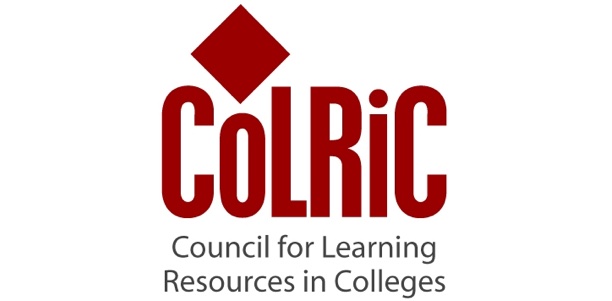Welcome to the summer edition of CoLRiC Impact, our fourth issue for the 2023/2024 academic year.
We have an inspiring contribution from Hannah Painting, Academic Librarian, Northampton College Digital & Academic Resources Centre, who describes the digital transformation and rebranding of the library in a major project. ‘While those of us in the profession already recognise that the term “library” encompasses our digital and academic endeavours, the recent name change represents meaningful recognition from the broader college community. This shift is more than just semantics; it signifies an evolution beyond book lending and area management. The modern Further Education (FE) library serves as a digital haven, an academic sanctuary, and a dynamic learning space where knowledge converges. Students and teachers alike benefit from comprehensive support and a wide range of resources that extend beyond books and magazines.’
Back in May we were delighted to host Martin Scott, Senior Lecturer/Full Time Programme Leader PGCE (PCET), University of Sunderland, Faculty of Education and Society, who presented a seminar on numeracy. In this issue he explores the challenges that maths teachers within FE face, discussing potential misconceptions and the valuable insight gained from speaking with maths practitioners. ‘A good maths education is the requirement of every modern learner. Every organisation should be able to meet each learners’ maths needs through effective teaching and learning opportunities. Mathematics alongside English, Science and a range of other subjects including ICT form a fundamental part of the school-based curriculum in the UK. Literacy and Numeracy form the basis of adult or Further Education. Learners who receive an effective maths education have more opportunities available to progress in careers, with employers seeking effective skills in finance, technology, data handling and engineering related job roles. However numeracy is generally classed as a poor relation to literacy; for instance, people can be judged on their reading and writing skills usually as a first impression whereas it can be more common or socially acceptable to say that they are poor at maths. As the DfE and FE institutions continue to prioritise maths education as a key component of lifelong learning and workforce development, encouraging decision makers to support and empower FE maths teachers and those associated with teaching maths, is essential to realising the potential of all learners and to meeting the evolving needs of the 21st-century economy and society. Ultimately, unlocking the potential of FE maths education will require grappling with issues of esteem, equity, and empowerment at learner, educator, and system levels. By foregrounding practitioner voices and wisdom, it is hoped that the findings of research can inform renewed dialogues and action towards actualising maths learning that is authentically engaging, expansive, and emancipatory.’
CoLRiC Executive Committee member Tracey Totty writes about a stock review ‘decolonising collections’ at Middlesbrough College. The College is inclusive and committed to ‘providing an environment in which there is equality of opportunity for all members of the community.’ It aims to embed equality and diversity in everything it does, and the Learning Resources Centre (LRC) is no exception to this. ‘We want to increase stock diversity to provide a collection which is more representative of our society and the world, and to challenge stereotypes and prejudices. This will not happen overnight. It is a gradual process which we have been working towards for some years. Our current priority is decolonisation. In the context of library collections, decolonisation involves examining and revising collections to ensure that they are equitable, inclusive and representative of all users.’
CoLRiC Administrator Val Skelton reports back from a National Acquisitions Group (NAG) on collection development in higher education libraries. We’re exploring a CoLRiC seminar on the topic and are keen to have your feedback on any arising issues that may impact on the FE sector. ‘The processes that support and drive collection development, the acquisition of resources, and the distribution and management of these resources are complex and multi-faceted. They require careful planning, budgeting, and collaboration with various stakeholders to ensure the library’s collection meets the evolving needs of its students and teaching staff, supporting both current and future demands for diverse and accessible materials. Adding to this complexity is the challenge of the information and data that is generated by these activities.’ Does data drive collection development in FE? Do you collect usage statistics to build an evidence based on the value and impact of the library service? Is artificial intelligence changing the nature of collection management and development? We’d love to hear your thoughts and suggestions for a seminar on the topic.
This issue also includes CoLRiC MediaWatch, our specially compiled and edited overview of April to June 2024 news stories, research projects and developments from across the education and library sectors. The General Election will be done and dusted by the time you read this issue. The skills agenda has dominated the FE landscape and the urgent requirement to reverse cuts to education. The Association of Colleges has been particularly vocal on behalf of the FE community stressing the importance of skills in developing the economy. The impact of mobile phone use also continues to dominate the headlines, and a body of evidence is accumulating to suggest that Schools and Colleges need to respond effectively to the challenges.
Please enjoy this issue and huge thanks to our valued sponsors for their contributions. We actively encourage you to write for CoLRiC Impact and to share your success stories. We’d like to showcase specific College achievements in future issues. Drop us a line and we’ll endeavour to publish your news and share it on social media.


